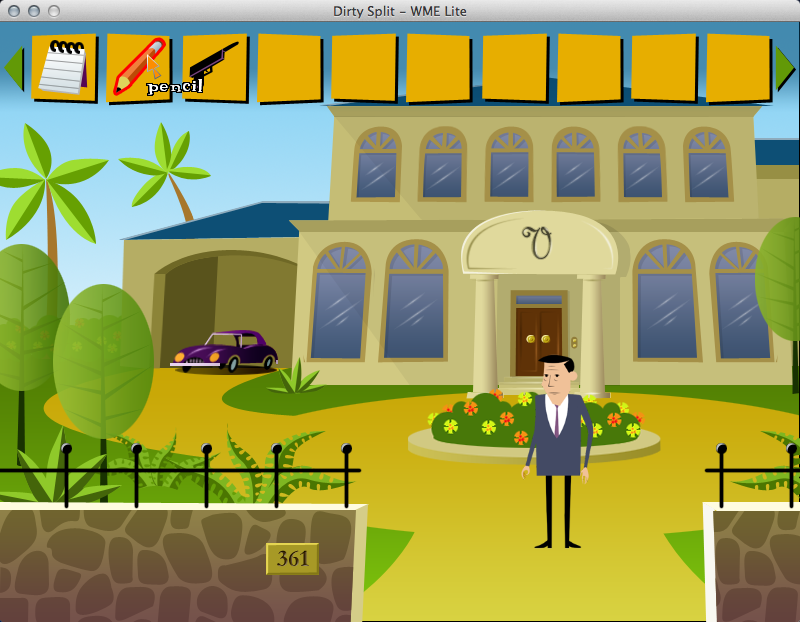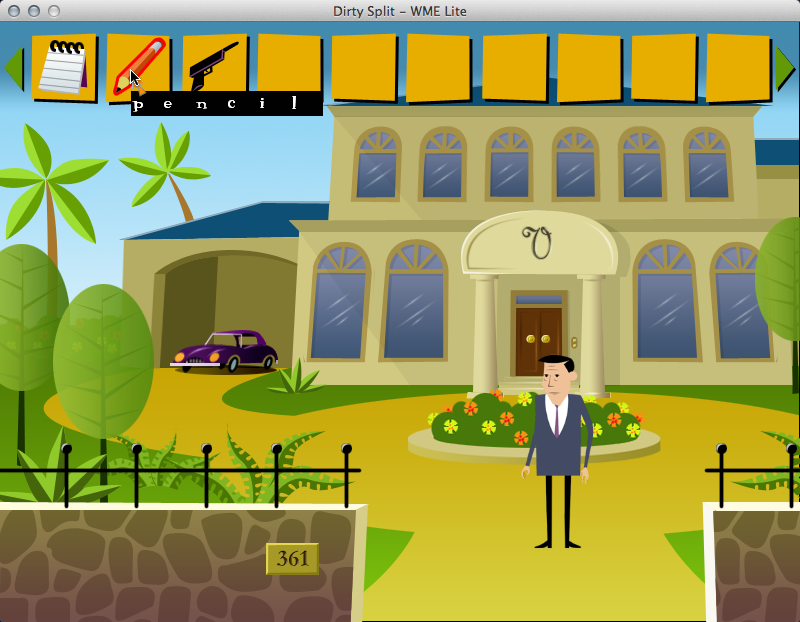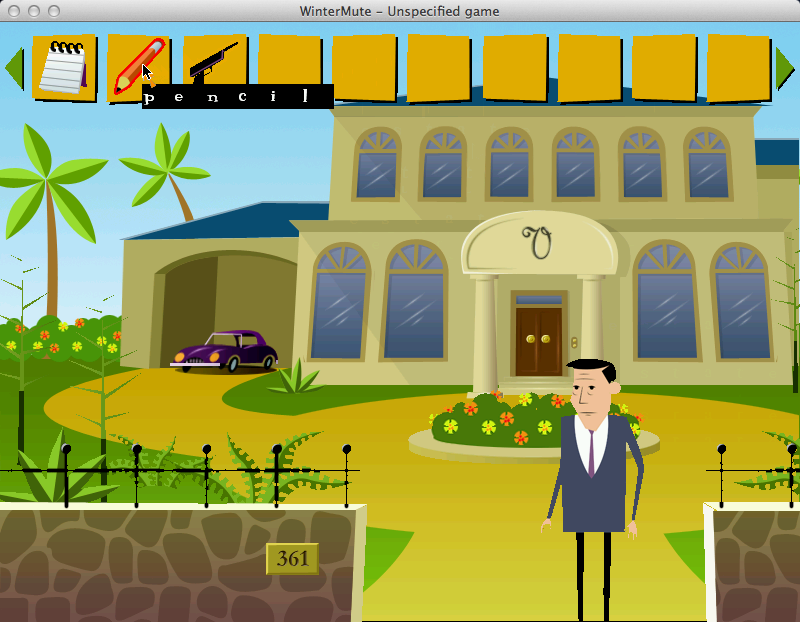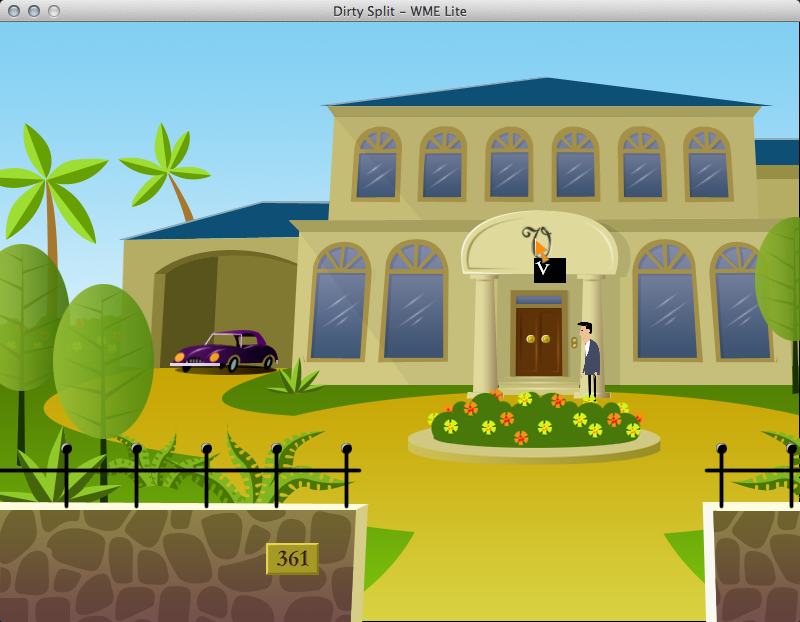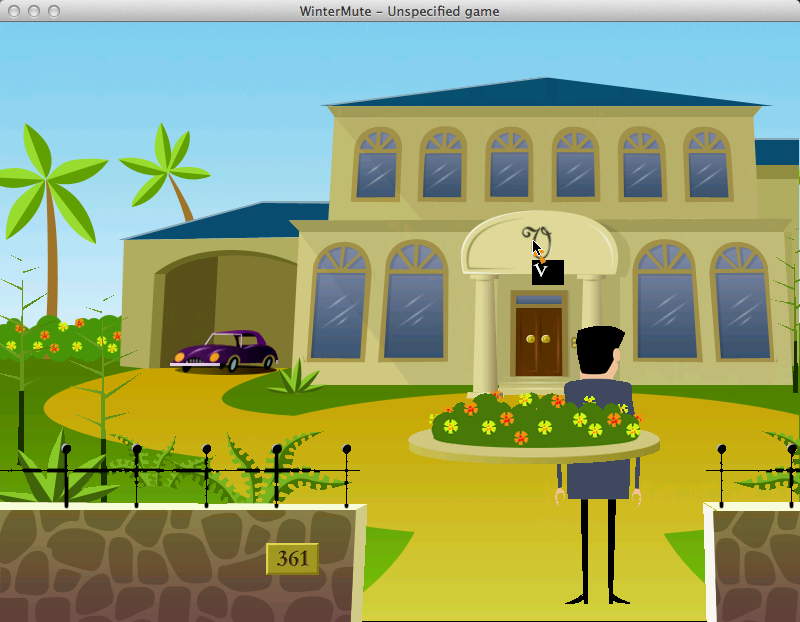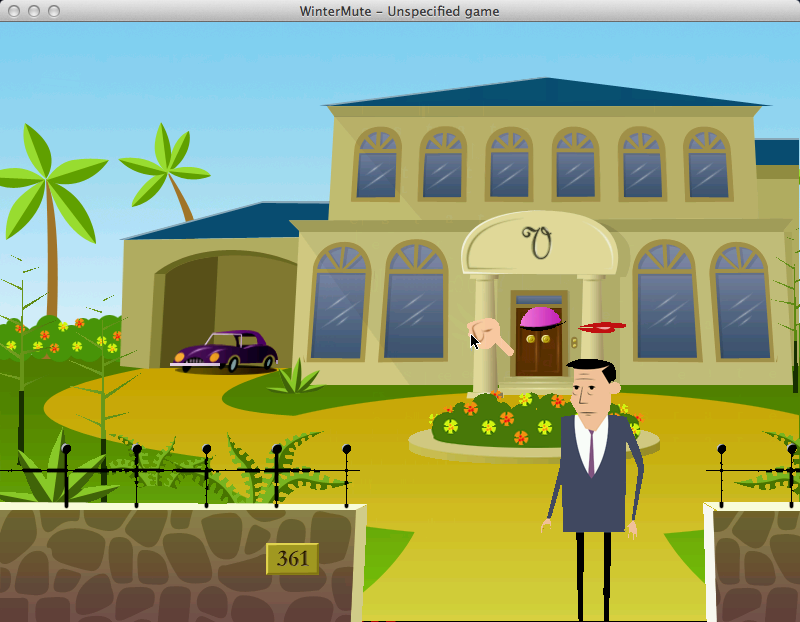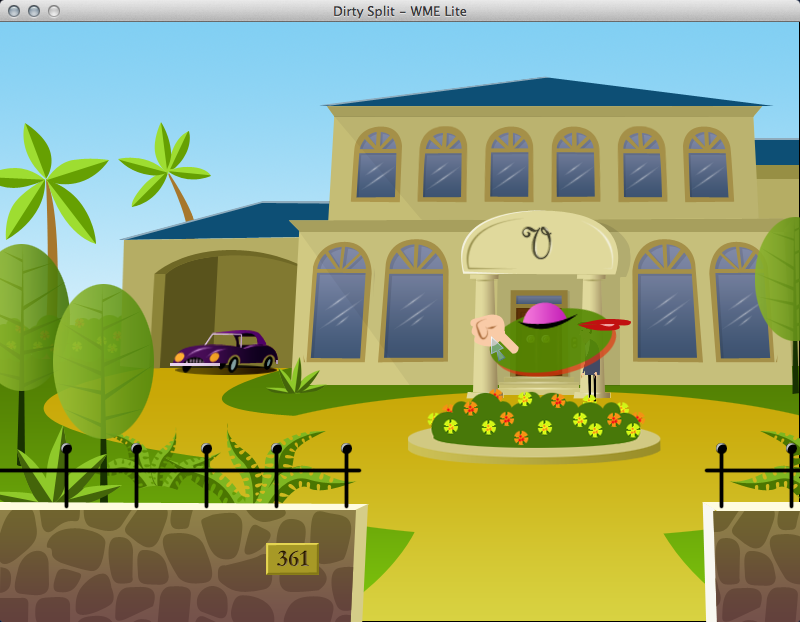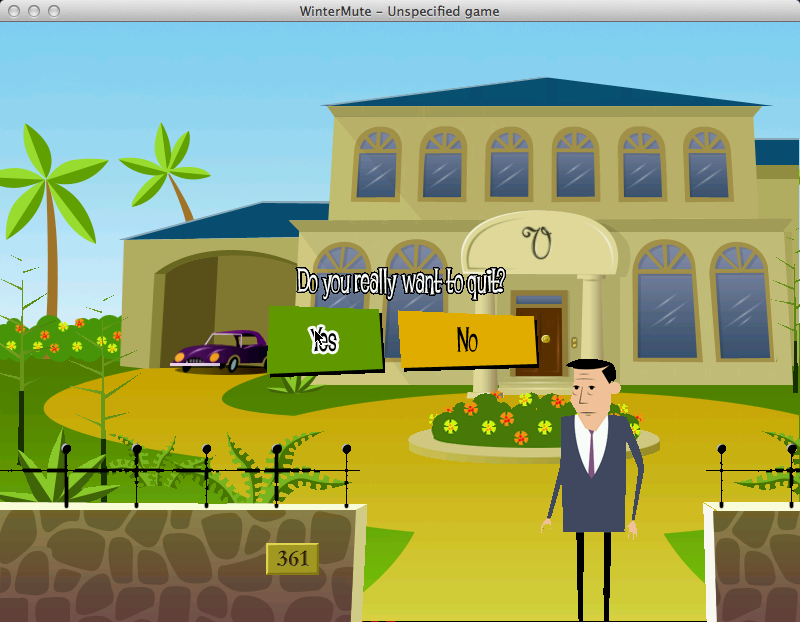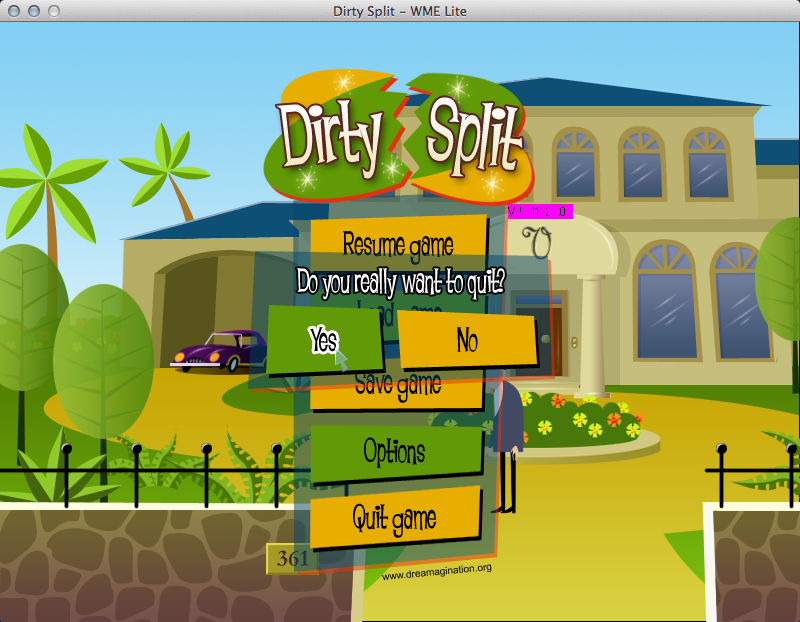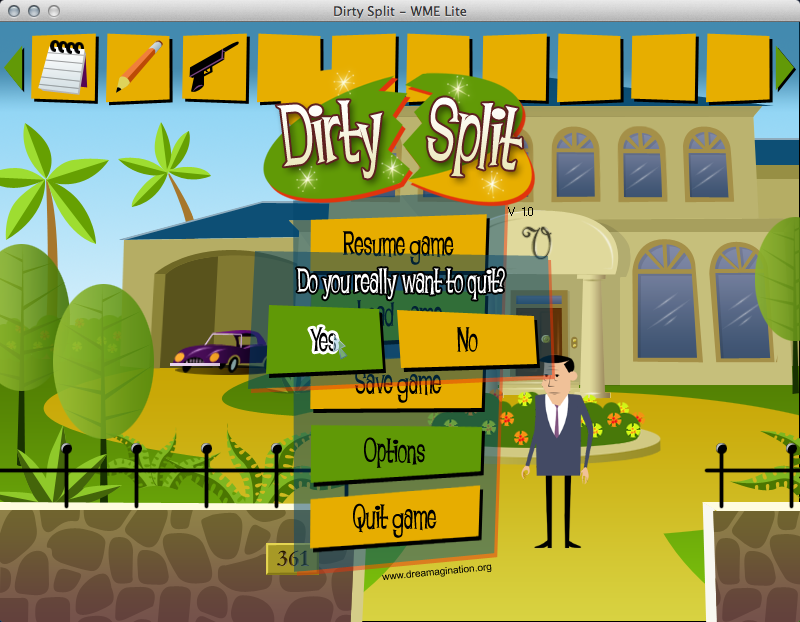Last week I listed a few issues that were on my “TODO”-list, well of course some progress has been made, so without further ado:
Volume-settings:
While formerly volume-settings were completely ignored, now I’ve removed the internal settings in the engine for sfx/speech/music-volume, and mapped those directly to the matching ScummVM-settings, which means that changing the volume in the GMM, or in-game will show up nicely in both places. Some games are a tad aggressive on updating the sliders, which makes for a bit of jumpiness on their sliders, but it works atleast.
The engine also has a concept of “master-volume”, while ScummVM doesn’t, so I ended up deciding that the most consequent way to solve that, was to simply apply that as a multiplication on the other values, thus setting Master to 50% when Speech is at 50% would yield 25%, and still get that updated when the values are changed through the GMM.
Sound-format-support:
I added in RAW-WAVE support (no MSADPCM-support yet), which means that the white chamber now also plays all it’s sound-effects. The engine will error out if it meets any other formats, a solution I chose to be able to pick up on missing format-support if some game needs any more than this.
TTF-Fonts:
As I said last week, the fonts now draw without being too dark, it remains to be checked if the line-lengths still match well (seems that Rosemary has a few problems with lines overflowing without increasing the background for the text.
Detection:
Ok, so this is where I’ve put a lot of my work the past week. While most of the games I have are added with proper MD5-detection entries, one of the bigger selling points of this engine is the ability to make your own games, and, well having to recompile ScummVM with new MD5s for every iteration of your development would be kind of a hassle, which is why I added a fallback-detector. Currently this works like follows for any given folder.:
- If the folder doesn’t contain a “data.dcp”-file ignore the folder
- Otherwise, start up the basic initialization of the engine.
- Add in the DCPs in that folder to the engine (although, “data.dcp” should be enough)
- Parse “startup.settings” to get the GAME-variable (usually “default.game”)
- Parse the file defined from “startup.settings”‘GAME-variable, looking for NAME and CAPTION.
- Then work with those vars to create a gameid and a game-description (using the extra-field of the detection entry to fill in the Caption if it differs from the game-name)
This gives a bit of overhead for each game, as quite a bit of the engine needs to be loaded to use the file-manager to read from a DCP, and the same holds true for the parser used, in all fairness this only happens whenever a “data.dcp” is found in a folder AND that data.dcp doesn’t match a known MD5, but still, long-term I guess a more clearcut solution would be in order. The only file that really gets parsed by the engine-parser right now is startup.settings though, while default.game gets put through Common::StringTokenizer simply because I only need 2 fields of that file.
One problem with this solution, is that I don’t use the StringTables in the engines, thus any localized captions will not be localized but instead contain the placeholder-string. In any case this isn’t too big of an issue, as using non MD5-listed games should become the rare case for developers, and the game name can always be added explicitly to the MD5-based detection.
File-access:
Changing the engine to be able to do detection without loading up the ENTIRE kitchensink of classes, while working with an explicit folder, lead me to investigate the file manager-system further. I had to change the use of SearchMan into a system of explicit FSNodes, which means that now paths for archive-less files are parsed with FSNodes, and all DCP-Packages now carry a FSNode to their location. (Instead of opening them with SearchMan when needed).
This might sound like an odd solution, but it has a decent use case, a few games have a “language” subfolder, that contains localizations for multiple languages, with a SearchMan-based solution I ended up registering ALL packages there, thus often ending up with czech ingame-text (alphabetic ordering of files…) To avoid this I needed a special-case for the “languages”-subfolder, filtering the dcp’s there, to only load the really necessary language. Right now this is hardcoded to be “english.dcp” only, but it should be quite possible to use the language specified in the game descriptor to select properly.
Variable-renaming:
While I still find the odd variable with the wrong convention, I have handled most of them now, one of the bigger changes was replacing the semi-global variable “Game”, which basically is a reference to the main “CBGame”-object, that every object carries around with it, that was left behind after the big rename a few weeks ago, mainly to make sure no big issues arose. But it has now been renamed to _gameRef.
I also changed all the class-name-conventions, removing the C-prefix and expanding on the classnames, thus any CBClass became BaseClass, and CAdClass became AdClass, and CSysClass became SystemClass, and so on. This was also followed up with renaming the entire file-hierarchy, to follow one filename-convention (i ended up with all_lower_case.{h,cpp}, as I’d had far too many case-typos when jumping between OS X and Linux in this project, this should atleast make it easy to remember the case-choice for any wme-filename).
Additional game detections added:
I added in quite a few more MD5-entries, to have more games to test with, here are the games I remember of the top of my head:
Note: Not all these games actually work, for reasons stated below in the “Remaining-issues” section.
- Actual Destination
- Chivalry Is Not Dead
- Dead City
- East Side Story (demo)
- Five Lethal Demons
- Ghost in the Sheet (demo)
- Hamlet, or the last game without MMORPH-features, shaders and product placement.
- Kulivoèko
- Mirage
- Reversion
- The Box
Remaining-issues:
- Videos still desynch, something I won’t be looking much further into in this GSoC, as the videos are a bit outside the main scope of this project, and well, the same issues still happen in Sword25, from where I got the video_decoder I’m using anyhow.
- Dirty-rect rendering is still sketchy at best. (and thus disabled by default.
- Interlaced PNGs are not yet supported, but that is also a bit outside of my control, I did open up a semi-complete pull-request that added more LodePNG-code to the PNG-decoder, but it still has a few files it chokes on.
- 32 bpp BMPs are not supported in ScummVM, shouldn’t be impossible to implement, as I already did some tweaks to work past the crash that ensued (simply skipping the fourth byte of every pixel in the BMP atleast yields some results).
- Non v.1.1 JPEGs are not supported in ScummVM, this I haven’t worked or looked any on, but it blocks a few games from even starting.
